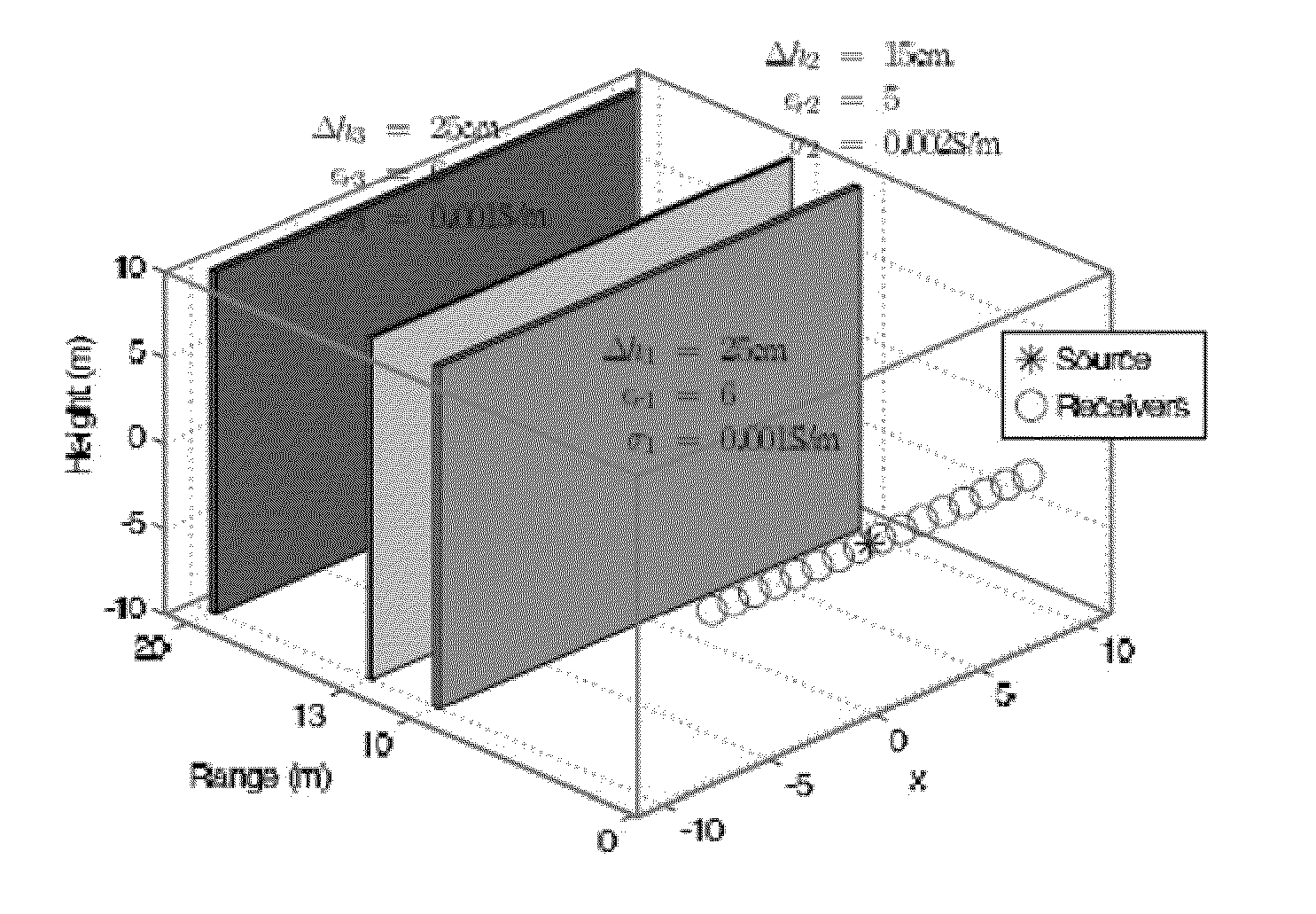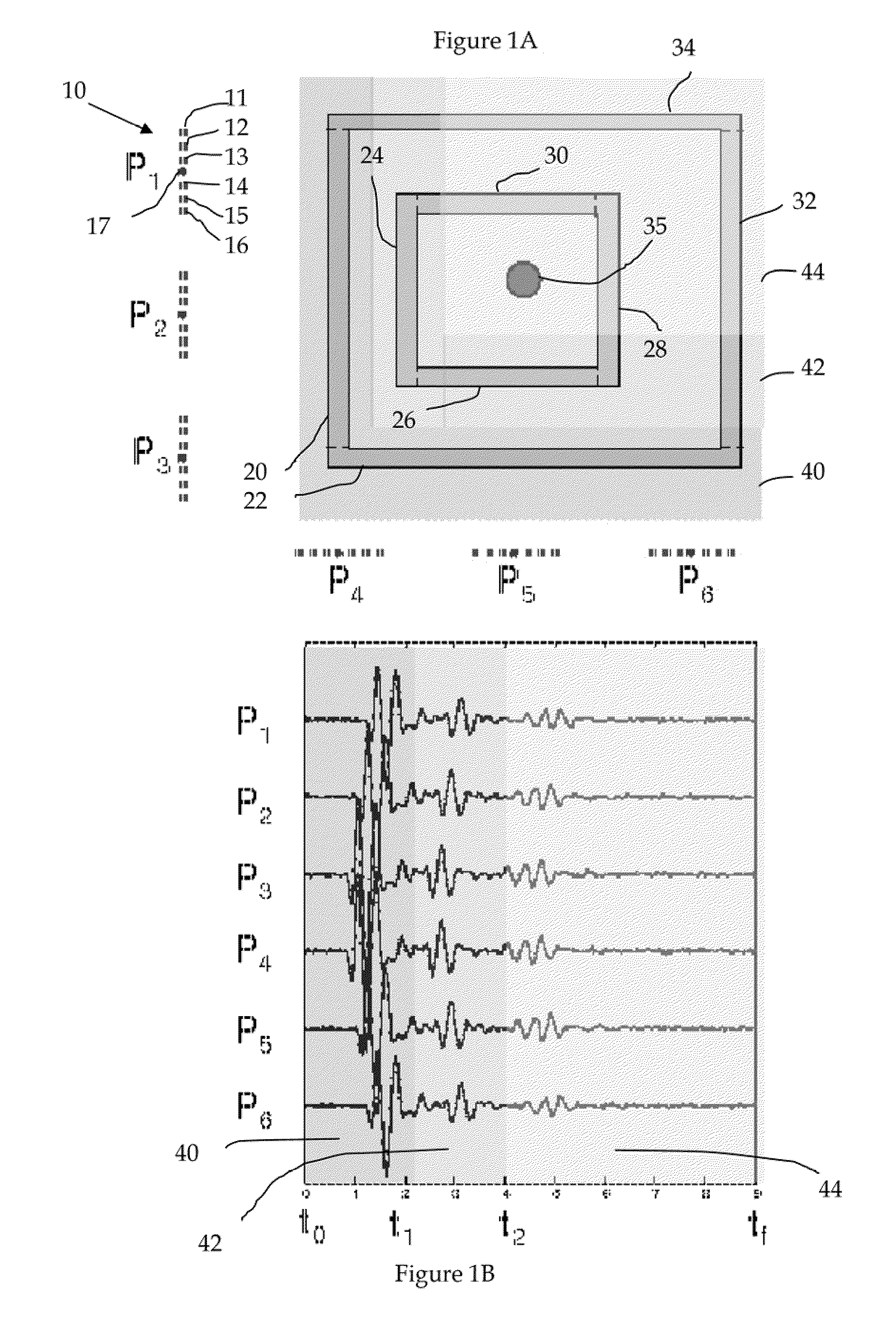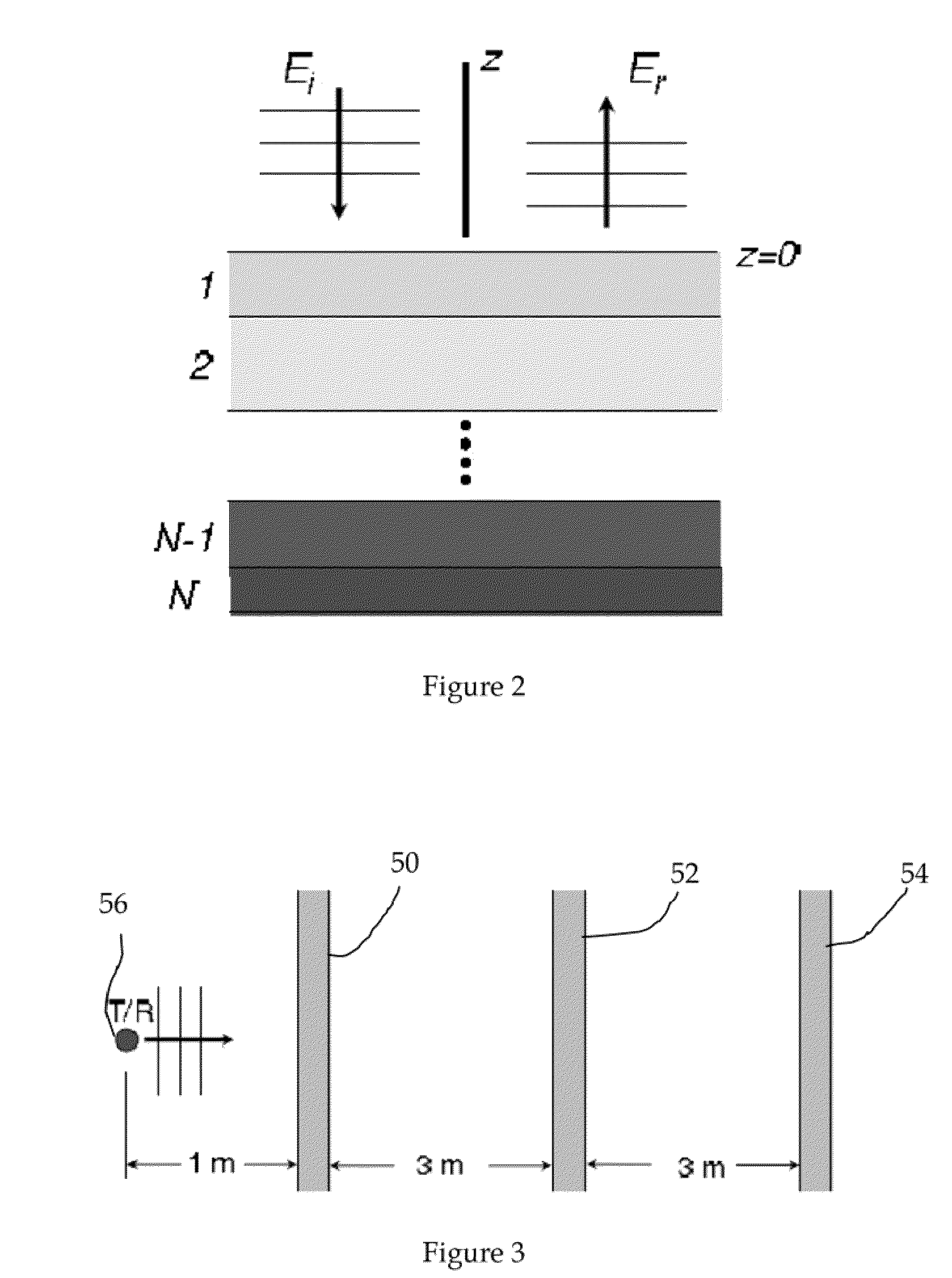Model-based tomographic reconstruction
a tomographic reconstruction and model technology, applied in the field of model-based reconstruction, can solve the problems of large amount of memory for high-resolution images, unwieldy, and no one applied these techniques to measured data, and achieve the effect of reducing the complexity of reconstruction
- Summary
- Abstract
- Description
- Claims
- Application Information
AI Technical Summary
Benefits of technology
Problems solved by technology
Method used
Image
Examples
Embodiment Construction
[0035]The ability to remotely deduce the floor plan of a building will be useful for emergency personnel, law enforcement, and military operations. Radar can penetrate building exteriors but the resulting multipath and diffractive effects makes it difficult to recognize and position interior structures (walls, doors, stairs, etc.). The present invention reduces these effects by using an ultrawideband (UWB) radar whose pulse width is smaller than the propagation time for a typical room. The timing of the returned pulses could then be used, in principle, to separate the returns from various interior structures. It is also desirable to incorporate prior information on the construction and layout of the building. This leads naturally to a model-based approach. The building structure is parameterized, a radar propagation code calculates the expected returns, then the parameters are adjusted to minimize the error between the predictions and the data. To implement this fully would require ...
PUM
 Login to View More
Login to View More Abstract
Description
Claims
Application Information
 Login to View More
Login to View More - R&D
- Intellectual Property
- Life Sciences
- Materials
- Tech Scout
- Unparalleled Data Quality
- Higher Quality Content
- 60% Fewer Hallucinations
Browse by: Latest US Patents, China's latest patents, Technical Efficacy Thesaurus, Application Domain, Technology Topic, Popular Technical Reports.
© 2025 PatSnap. All rights reserved.Legal|Privacy policy|Modern Slavery Act Transparency Statement|Sitemap|About US| Contact US: help@patsnap.com



